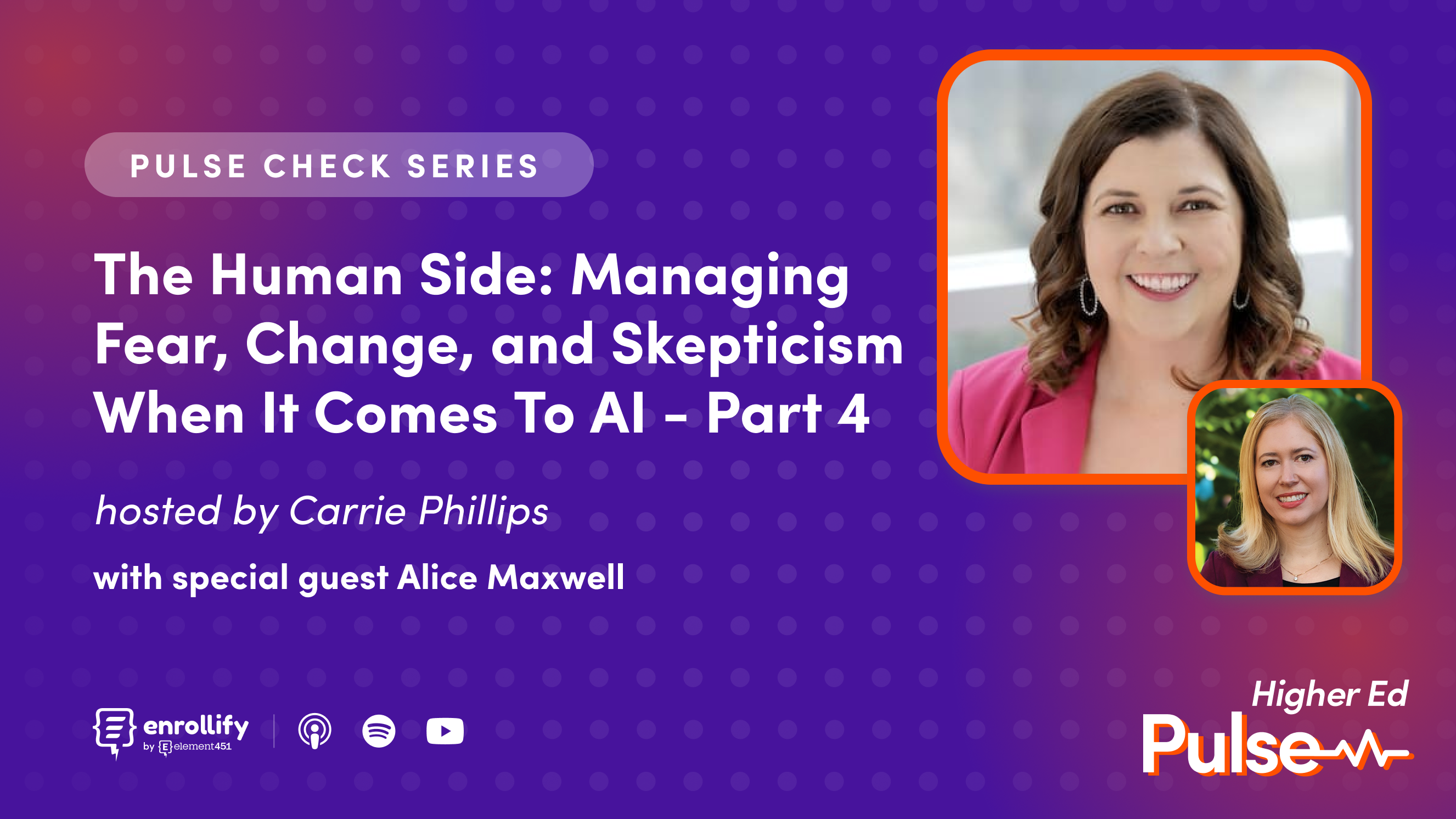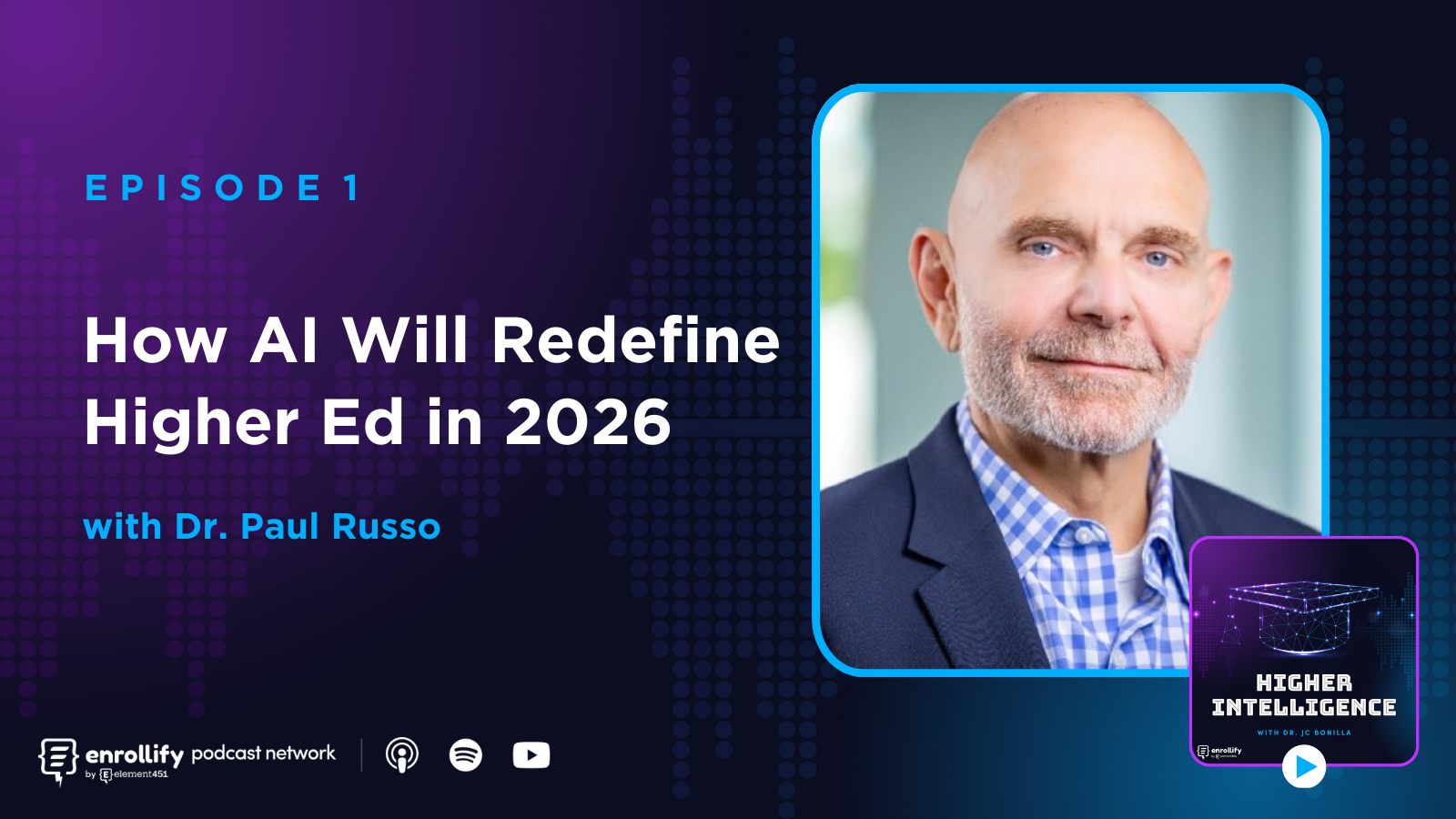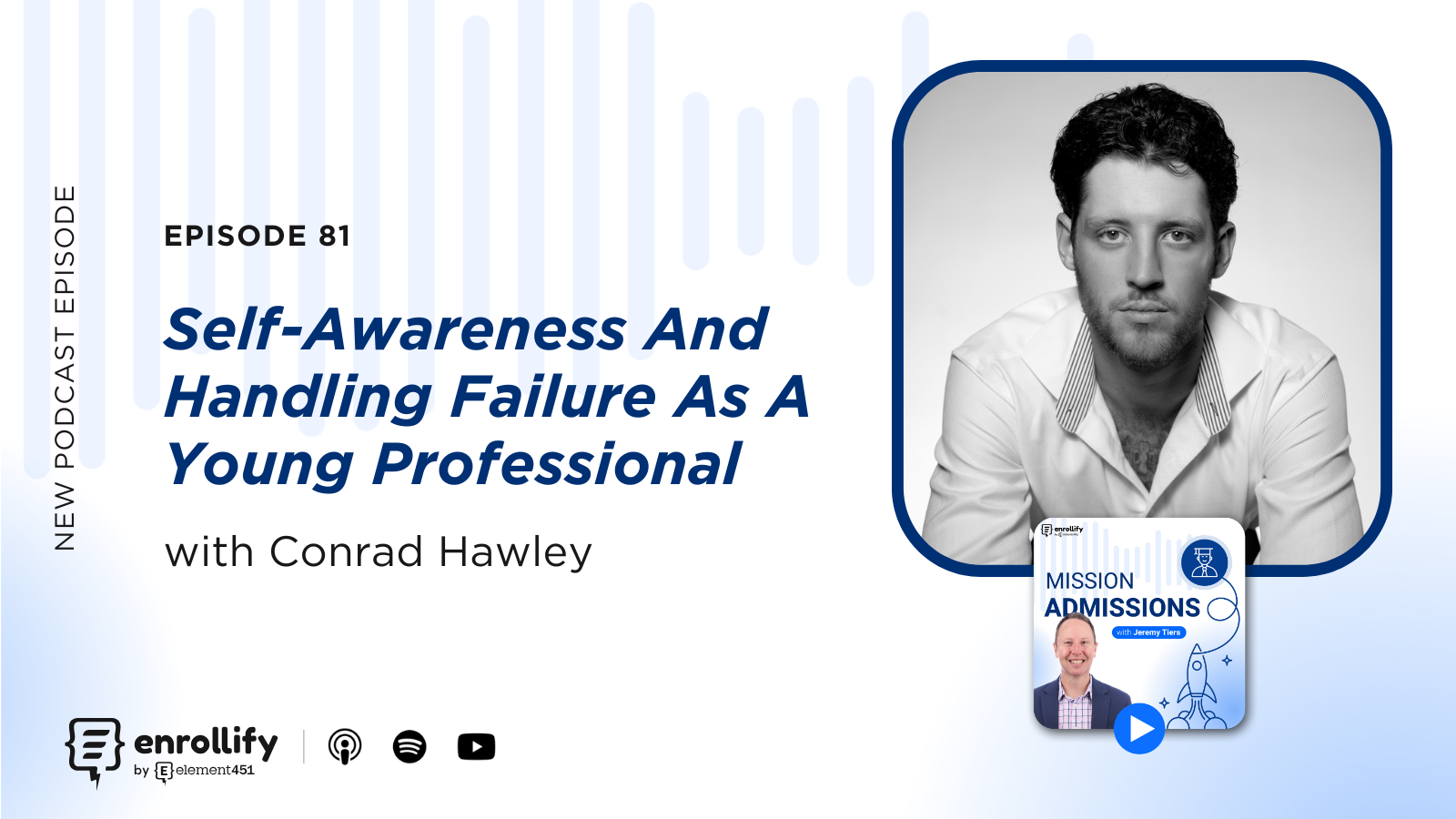About the Episode
Got a story to tell? An innovative idea to share? Fill out our guest nomination form and let's chat!
About the Episode:
In this episode recorded live from Transact 360, Dustin chats with Read Winkelman from Transact about his unique dual lens of personal experience as a parent of college students and decades of professional experience. Read offers a compelling look at how mobile credentials are driving convenience, enhancing campus safety, and enabling smarter student support through real-time behavioral data.
From leveraging analytics to flag students who may need help, to imagining how AI and biometrics could soon personalize student services even further, this episode is packed with bold ideas and practical insights higher ed leaders need to hear.
Key Takeaways
- Mobile credentials are no longer a “nice-to-have”—they’re expected by today’s students.
- Convenience and security go hand in hand when it comes to mobile-first campus experiences.
- Integrated data from mobile tools provides actionable insights for early student intervention.
- Institutions can track student behavior to support health, safety, and engagement.
- AI and biometrics are poised to transform how campuses deliver student services.
How are mobile credentials transforming the student experience?
Read Winkelman makes it clear: mobile credentials are the most important tool in the student success toolbox right now. Students today—especially Gen Z—expect to navigate the world from their smartphones. Physical ID cards feel like relics of the past when compared to the ease, convenience, and eco-friendliness of digital credentials. Read, as both a higher ed leader and parent of college students, sees firsthand how digital-first behavior defines this generation’s expectations on campus.
What’s more, mobile credentials offer a modern way for institutions to say, “We get you.” They reflect an understanding of how students prefer to engage with services, spaces, and resources. Read explains that having a credential embedded in a student’s phone—or better yet, on their smartwatch—allows for seamless access to dining halls, residence buildings, and more. It’s not just about reducing plastic waste or streamlining access—it’s about building trust and boosting student satisfaction through thoughtful technology design.
And here's the kicker: mobile credentials aren’t just convenient. They're critical for safety. A student can now hold their wrist up to a reader, access their dorm, and simultaneously stay connected to campus security. These digital IDs speed up response times and minimize friction in moments that count. With more campuses opting into mobile ecosystems, Read argues the real question isn’t should you go mobile—it’s why haven’t you already?
What student data is most useful for early intervention and support?
One of the most fascinating parts of the episode centers on how behavioral data—collected through mobile transactions—can signal when students might need help. Read explains how simple patterns, like skipping meals or avoiding residence halls, can indicate larger issues such as isolation, burnout, or academic distress. This kind of passive data can help institutions intervene before it’s too late.
Read shares real-world stories of RAs using transaction data to casually "bump into" students who haven’t been seen in dining halls. These moments of low-stakes outreach can be the difference between a student persisting or withdrawing. He also recounts how data revealed one student was living off-campus without the university’s knowledge, prompting necessary engagement to ensure the student stayed connected.
This behavioral data also sheds light on program effectiveness. Students might say they want weekend programming, but if they don’t show up, that’s the truest form of feedback. Insights from integrated ecosystems help institutions align resources to what students actually do—not just what they say they’ll do.
How can AI and biometrics enhance the campus of the future?
Read looks ahead to the next wave of tech shaping higher ed: AI and biometrics. While some administrators may be hesitant about biometrics, Read argues that students are already using tools like Face ID and Touch ID in their daily lives without hesitation. Rather than replacing mobile credentials, biometrics will likely work alongside them, offering an additional layer of security and convenience.
AI, meanwhile, holds major potential for decision-making. From crafting meal plans that better match student behavior to predicting service needs, AI can help synthesize large data sets into smarter strategies. Read emphasizes that this isn't about cutting corners—it’s about enhancing experiences. With the right tools, institutions can better anticipate student needs, adapt more quickly, and personalize support in ways that feel meaningful.
Ultimately, Read encourages institutions to stop assuming what students want and start listening to what their behavior is already telling them. And with mobile tools feeding real-time data into powerful AI systems, higher ed has a golden opportunity to turn that insight into impactful action.
About the Show: The Higher Ed Geek Podcast explores the impact of edtech on the student experience by speaking with diverse leaders from institutions, companies, and nonprofit organizations. Each week we aim to provide an engaging, fun, and relevant dose of professional development that honors the wide range of work happening all across the higher ed ecosystem. Come geek out with us! The Higher Ed Geek Podcast is hosted by Dustin Ramsdell and is a proud member of the Enrollify Podcast Network.
Connect With Our Host:
Dustin Ramsdell
About The Enrollify Podcast Network:
The Higher Ed Geek is a part of the Enrollify Podcast Network. If you like this podcast, chances are you’ll like other Enrollify shows too!
Some of our favorites include Generation AI.
Enrollify is produced by Element451 — the next-generation AI student engagement platform helping institutions create meaningful and personalized interactions with students. Learn more at element451.com.
Attend the 2025 Engage Summit!
The Engage Summit is the premier conference for forward-thinking leaders and practitioners dedicated to exploring the transformative power of AI in education.
Explore the strategies and tools to step into the next generation of student engagement, supercharged by AI. You'll leave ready to deliver the most personalized digital engagement experience every step of the way.
👉🏻 Register now to secure your spot in Charlotte, NC, on June 24-25, 2025!







.avif)







